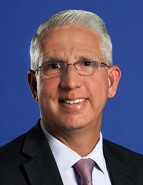April 7, 2020 by John Fernandez
Women and Alcohol: The New Truths

Alcohol addiction is an equal opportunity health risk, with little concern about income, education or gender. Just ask Elizabeth Vargas, the 51-year-old anchorwoman for ABC’s 20/20 news show. Her name recently hit the headlines after she checked into a rehabilitation program for alcohol abuse.
In doing so, she placed a spotlight on the growing problem of alcohol abuse in women, says David Vittoria, assistant vice president of the Addiction Treatment & Recovery Center at South Miami Hospital. The World Health Organization (WHO) also focused on the increase in alcohol abuse in women in a new report called: “Global status report on alcohol and health 2014.” The WHO report also cited alcohol as the cause of or contributing factor behind millions of deaths each year around the globe.
What’s more, the disclosure from Vargas goes a long way toward eliminating the stigma and barriers that discourage many women from recognizing or seeking treatment for alcohol abuse.
“Elizabeth Vargas took ownership of her disease and responsibility for treatment. She came out in her own voice. The announcement didn’t come from her agent or publicist,” Mr. Vittoria says. “She made the statement herself.”
Her statement offered to the media:
“Like so many people, I am dealing with addiction. I realized I was becoming increasingly dependent on alcohol. And feel fortunate to have recognized it for the problem it was becoming. I am in treatment…Like so many others I will deal with this challenge a day at a time. If coming forward today gives one other person the courage to seek help, I’m grateful.”
She’s not alone. Substance abuse is a major problem for men and women, according to research studies. Columbia University’s National Center on Addiction and Substance Abuse (CASA) reports that 40 million Americans, roughly 16 percent of those age 12 and older, have some form of an alcohol, nicotine or drug addiction. Based on those findings, the CASA research team singled out addiction as the greatest preventable health problem in the U.S.
As a chronic disease, alcoholism can be fatal and lead to other fatal illnesses, such as kidney failure, liver disease, cancer and heart disease.
 “A lot of people with substance-related disorders develop other physical ailments. Unfortunately, throughout the nation, the addiction piece — the underlying cause of those other illnesses — can go untreated, particularly for women,” Mr. Vittoria says (pictured left). Because women do not fit common stereotypes linked to alcohol abuse, some medical professionals fail to recognize otherwise clear physical signs of an addiction.
“A lot of people with substance-related disorders develop other physical ailments. Unfortunately, throughout the nation, the addiction piece — the underlying cause of those other illnesses — can go untreated, particularly for women,” Mr. Vittoria says (pictured left). Because women do not fit common stereotypes linked to alcohol abuse, some medical professionals fail to recognize otherwise clear physical signs of an addiction.
Here is more information about women and alcohol abuse:
What contributes to alcohol addiction and other substance abuse disorders in women?
Addiction is not a single-dimension problem, especially for women. To a larger extent than men, women with substance disorders are more likely to:
- Lack healthy close relationships.
- Have experienced some sort of trauma, including sexual or physical abuse.
- Suffer from depression, anxiety and stress.
- Have a partner who also abuses alcohol or other substances.
Genetic factors and family history also play a role in substance abuse for both genders.
What are the health risks of alcoholism?
The National Institute for Alcohol and Alcohol Abuse (NIAAA) reports that alcohol addiction or abuse places women at a great risk for liver damage, hepatitis, brain disease, breast cancer and heart disease.
“Heavy drinking increases a woman’s risk of becoming a victim of violence and sexual assault,” according to a report from NIAAA, a division of the National Institutes of Health.
The Institute estimates that nearly 5.5 million women drink alcohol at levels that place health, personal safety and well-being at risk.
What are the treatment options?
Addiction strikes women and men, but there are gender differences in drinking and recovery patterns, Mr. Vittoria says. Each patient receives a personalized treatment plan at the Addiction Treatment & Recovery Center. The multi-discipline treatment plan addresses the individual factors that trigger addiction, including mental health. And given the cultural, societal and physical differences between women and men, individual treatment plans reflect gender differences. For women, therapy sessions tackling sexism, relationships, self-esteem and age-related pressures may be key elements of treatment.
“With all of our patients, we help them identify the physical, mental and emotional cues that triggered their drinking,” Mr. Vittoria says.
Elizabeth Vargas thanked friends, family and ABC coworkers for their support during her battle with alcohol addiction. But diverse voices in the addiction treatment community are grateful for her honesty.
“She’s well-respected and accomplished, and she paints a different portrait of those affected by alcohol,” Mr. Vittoria says. “I hear her saying this about addiction: ‘I own it; it’s mine. This is what I’m doing to recover.’ ”
top stories












There are no comments